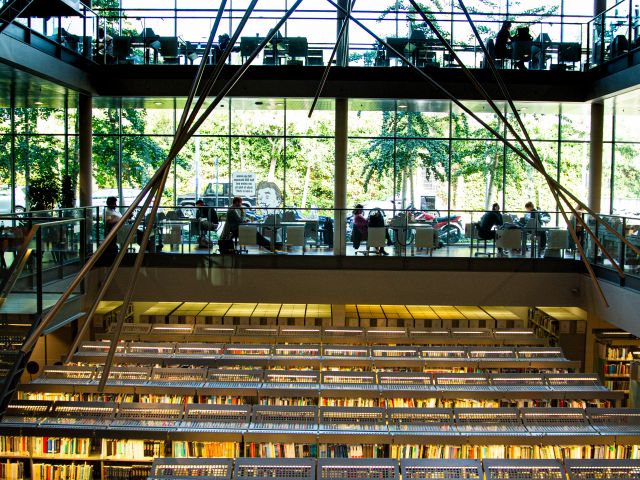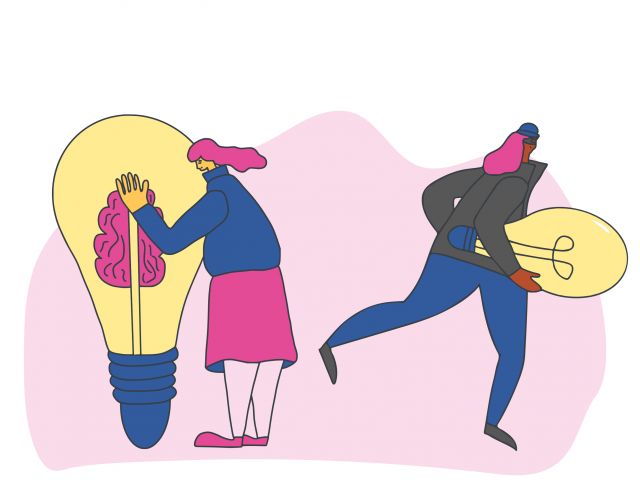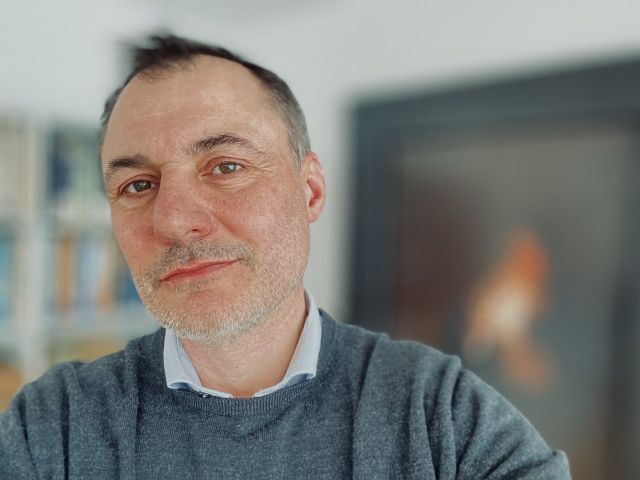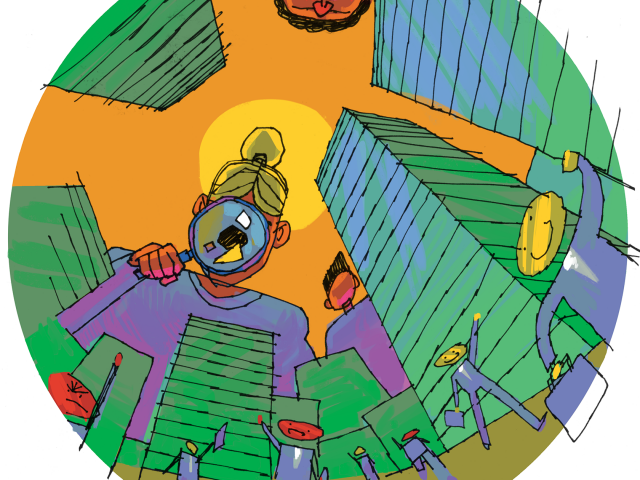All new CBS students to be tested in academic integrity to avoid cheating

(Photo: Anna Holte)
Starting from the fall semester, new students will have to pass a course on academic integrity. About 30% of the students are unsure about the rules, says Senior Adviser from CBS Library. Also, a new network is bringing together teachers, researchers and administrative staff to help students understand how to avoid academic misconduct and prevent plagiarism anxiety.
Throughout the year, CBS runs several campaigns and hosts events on how to avoid academic misconduct and cheating. From the fall semester, the campaigns and initiatives will be accompanied by a course that all new CBS students will have to take and pass during their first semester.
“About 30% of our students are unsure whether what they are doing is correct or not,” says Joshua Kragh Bruhn, Senior Adviser at CBS Library.
Pilots of the new course were run in the fall of 2020 and this spring for which about 700 to 800 CBS students volunteered for, and the response was surprising, says Joshua Kragh Bruhn.
“A lot of the students who took the course said that it was great and that they would like to have more like this. That showed me it’s something the students care about and need. I was a little surprised by the positive feedback, to be honest,” he says.
Bitta Nielsen, Director of the Study Administration at CBS, explains that the new students who are to take the test should not fear it, but should rather see it as a way of ensuring that they have understood what academic integrity involves.
“We have exams so students can show that they have learned what we want them to learn. It works as documentation of their skills, and it is the same with the test on academic integrity. If they know what they can and cannot do, it does not make much sense to cheat. I know that some students can feel pressured into wanting to cheat, but in the end, they only cheat themselves,” she says.
Joshua Kragh Bruhn explains that the test is not to be seen as a raised finger, but rather as a tool for reducing doubt and anxiety.
“Plagiarism anxiety is a focus area and something we want to address. Some students fear the bloodthirsty algorithms that check their assignments, but I want to emphasize that if you know the rules, there’s nothing to fear. Anxiety arises when we are struck by uncertainty, so we want to reassure the students so they can become the best academic versions of themselves,” he says.
The course material will also be available for all other students at CBS, not as a course, but as a web tutorial.
Well-functioning academics
On top of introducing the new mandatory course, CBS is also establishing a network on academic integrity.
Joshua Kragh Bruhn and Bitta Nielsen have initiated the network, which aims to gather forces from all around CBS to discuss and develop content and initiatives to make the students better prepared for getting on in the world of academia.
“When I look around, there are plenty of great content and initiatives available for the students, but they are scattered around the organization, and not always available for everyone. So we want this network to focus on how we can spread the message and make sure everyone gets the same message,” he says.
The ambition is to make the students well-functioning academics
Bitta Nielsen
Bitta Nielsen explains that she wants employees to share best practices and inspire each other.
“Academic integrity is extremely important – especially within the academic world. It’s what it’s built upon. So we want to gather all the people who are interested in this to drive the agenda forward,” she says and explains the ambition of the network:
“The ambition is to make the students well-functioning academics, and to make sure that we continue to develop campaigns or content on the matter. Creating a course on academic integrity issues and thinking that will do it is not enough. No, we need to keep looking into how we can do even better.”
Already, Joshua Kragh Bruhn and Bitta Nielsen have received emails from administrative staff, lecturers and researchers who, in one way or another, work with academic integrity issues or are interested in it, and there is plenty of room for more.
“We already have a diverse group of people, and I believe that diversity will help us move the agenda forward,” says Joshua Kragh Bruhn, who already has in mind what he would like to discuss with the new network’s members.
“I would like to run a campaign on self-plagiarism. It is not always easy to figure out what you can and cannot do with content that you have produced yourself. It’s a really big issue, but it’s an issue that people do not always agree on. So it would be interesting to discuss it with the new network,” he says.





































































































































Comments